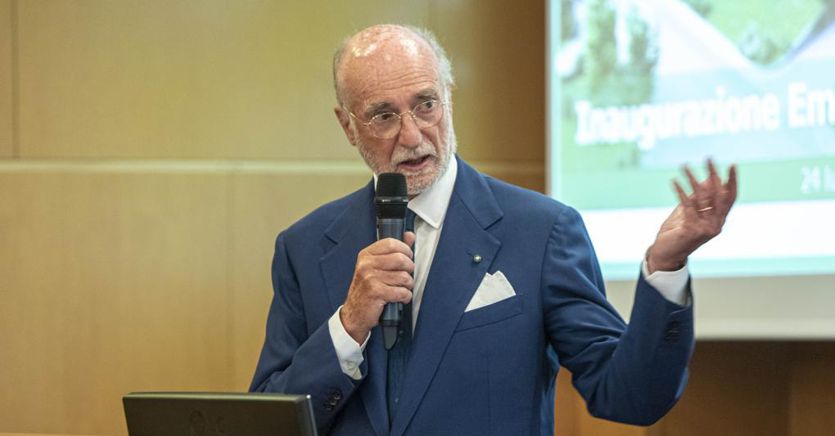Europe must continue to reduce emissions but without destroying the industry, also because it is responsible for only 7% of the climate warming emissions. This was stated by Gianfelice Rocca, president of the Techint group, during the conversation “Energy transition and sustainability: the risk of the cold war” with the journalist Maria Latella during the Trento Festival of Economics. “The European industry will have to operate in a disadvantaged position compared to China with higher energy costs, and meanwhile China is making the energy and ecological transition using coal and investing in a plan of thirty nuclear power plants”.
The traps of cynicism and ideology
In other words, Europe must take pride in its specificities, that is, the ability to dictate and impose the technological standards to which the rest of the world will have to adapt, without using the transition in a cynically Chinese way, but not even getting drunk on ideology. And Brussels today “does it in an ideological way, it throws industry out of its countries without bringing any environmental benefit”; Europe “is responsible for only 7% of emissions, we have to continue doing our homework but we are not the problem”, so “if we are not careful we destroy the industry and we do not solve the problem of the planet: we are fools “.
The standards to be dictated to the world
Rocca recalled the recent example of the GDPR, of the European rules on privacy and of the work still underway on taxation for internet platforms, which have become the standards that the whole digital world has bowed to.
It is not the first time that the world industry has had to support virtuous European technologies: it happened with the emission standards of the auro, from Euro1 to the current Euro6, up to the Gms telephone standard from which the various technologies are then derived. up to 5g today. This is the characteristic that Europe must have in order not to lose its industry: lead the way without destroying its economy.
«The US will continue to be an engine» of the world economy «because it has the energy. It is Europe that is weaker. A force of the energy transition is gas, which makes it possible to replace coal, ”noted Rocca and the United States are better positioned in this field than Europe.
The methane dilemma
“The industry is based on energy, if Europe has the most expensive energy in the world, the situation becomes dramatic”, continued Rocca, underlining that today there is “a contingent situation of energy crisis” but for the Europe is «also structural. If we look at the transition to decarbonization, the US is better off thanks to its resources, ”she added. “If Putin turns off the taps, we Europeans enter a crisis, in an almost war situation of rationing” and for example “we in Dalmine, where the Tenaris plants are located, are making checkerboard plans for the plants”. In this context, for Rocca, «we are hitting Russia confusedly. The announcement effect is more deleterious than the sanctions themselves, you do or don’t do the measures. Prices rise immediately and they collect for 6 months before the sanctions come into force ».
United in Europe
“Europe can only play a role with a common effort” on a global level and it does not necessarily mean that it should do so alongside the United States and Japan as it has done up to now. In a logic in which there are the western bloc, the eastern one with China and India, «Europe can get closer to the rest of the world: there are about twenty economies in the world that are interesting. We cannot renounce a pluralistic role ». Italy, with no wind, with little methane, not sunny enough, must set up its energy transition policy while remaining firmly in Europe: «We must not break the common market. The single market is Europe’s strength, if these mechanisms are broken it is self-harm ». And taking the example of energy, Rocca recalled that “Spain is on the lucky side, thanks to having invested heavily in alternative energy, it also has regasifiers and uses them at 26% of its capacity” and in this context , “One of the first European responses is the integration of networks”.
